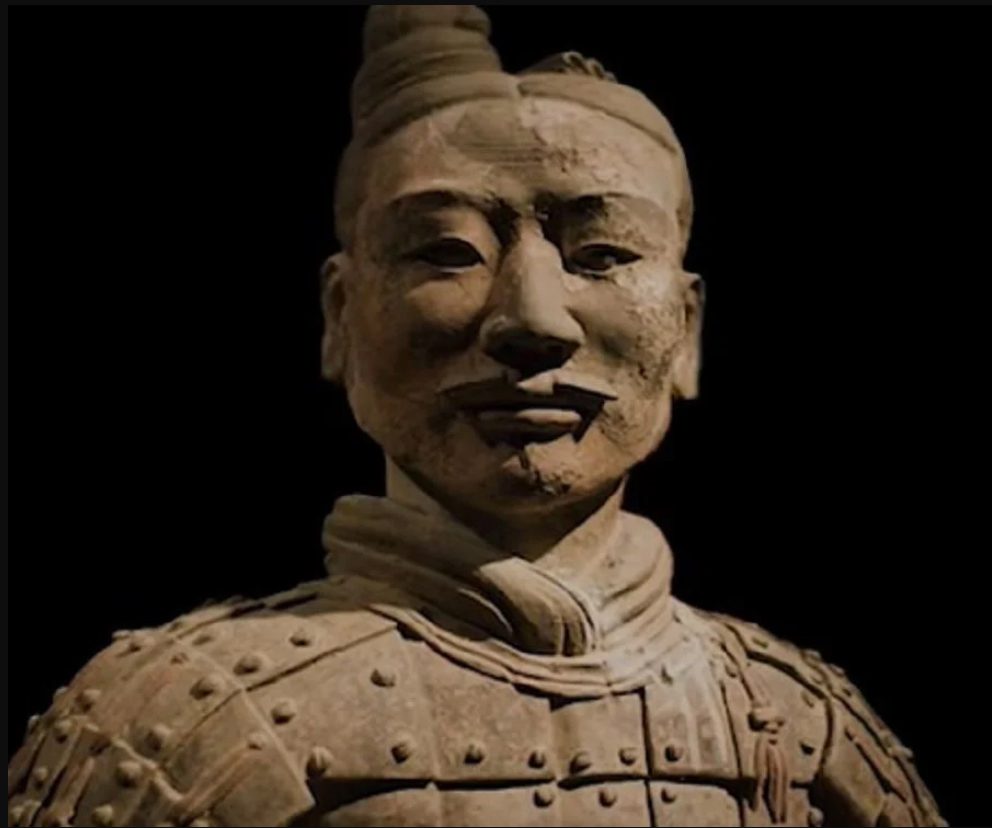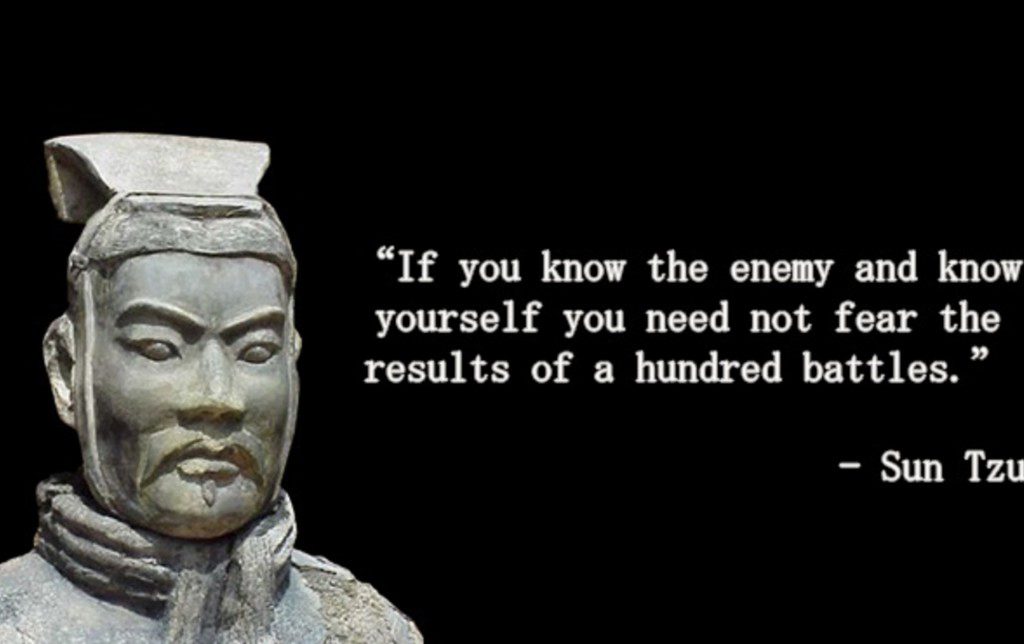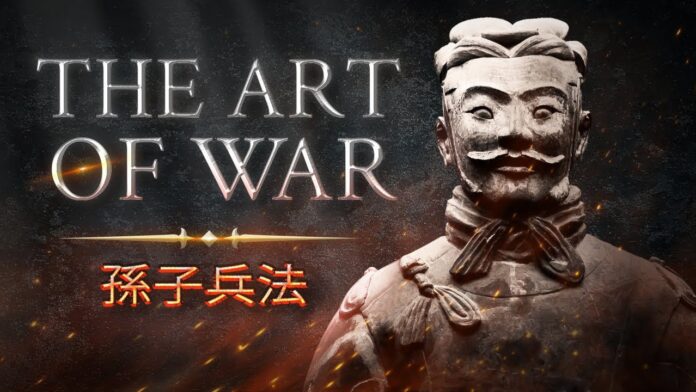The Art of War is a masterclass about an ancient Chinese warrior and philosopher, Sun Tzu. It delivers the essential fundamentals that must be considered to develop strategies for conflict resolution.
Simply put, this brilliant classic piece is for all ages. Its teachings have been applied in wars, business, and sports strategies. However, I have yet to find anyone who suggests that logic is dissected and taught to kids.
What if we can instil this way of thinking in kids early? I am not suggesting you say a cheerful goodbye to your kids and pack them off to the nearest military barracks. Everyday life is all about conflict resolution; aside from our own complexes, you see it play out all the time with kids interacting with each other.
Then why not teach them about the ‘The Art of War, sorry ‘The Art of Life’? But first, let’s see if I can present a persuasive article through reasoning.

How I came about the book The Art of War
The version of The Art of War I spent a week dating was translated by Samuel Griffith. I stumbled upon this book by chance; I was watching the cable network Vice TV’s 6-part series on the ‘Dark Side of Football’. The series closely examines transgressions, crimes, and scandals from the world of football. By football, I do not mean the British version of football (‘soccer’ to the Americans), but I am talking about American Football.
It explores the tension between America’s undying love for the game and its ability to corrupt and damage those who live and die for it. In season 1, episode 2, “The Dark Art of Bill Belichick”,. I assume you are all a fan of my art and have read Parent-Child Kiss, Why Can’t I? If so, then you will know all about Bill Belichick. I greatly admire Bill Belichick and his mind; the guy is a true genius.
New England’s Bill Belichick is the most successful coach in the history of the NFL. Episode 2 of the series took a close look at how he overcame scandals while cementing his standing as a master tactician.
Evidence was presented that he stopped at nothing to gain a Super Bowl Ring. It is during this episode that I learned about The Art of War. As soon as I saw it, I knew this was the book I had to read. If it is good enough for my leading man Bill, it is good enough for me!
So who is Sun Tzu?
Sun Tzu is admired in Chinese and East Asian culture as a legendary historical and military figure, tactician, writer, and philosopher. Born as Sun Wu in 544 BC (traditional), he was known outside his family by his courteous name, Changqing. His worldwide popular name is Sun Tzu, which means “Master Sun”. Died 496 BC (traditional; aged 47–48).
Sun Tzu’s principles are not only intended for war; many leaders worldwide, both government and business, are all using Sun Tzu’s principles. In addition, rappers often mention him in their songs. So why not teach kids? If your kids understand chess, then The Art of War is for them. The book outlines how you break down problems and solve them, one move at a time.
The book guides you through the steps required to become a competent leader, fighter, sportswoman/man, negotiator, and problem-solver. Teaches you how to determine victory, when to engage in combat, and when to use intelligence and intimidation to dissolve conflict without confrontation.
With the teachings, you’ll understand how to read conflict and opponents to determine the best course of action. It is all about understanding how the other person thinks before you act. Such a profound, powerful skill to learn and possess.

What are Sun Tzu’s Views on War?
Sun Tzu’s book’s opening verse provides clues that underline his philosophy.
War is a grave concern of the state; it must be thoroughly studied. Here is recognition – and for the first time – that armed strife is not transitory aberration but a recurrent conscious act and therefore susceptible to rational analysis
Sun Tzu placed a lot of emphasis on the moral strength and intellectual faculty of men in war. If these were adequately applied in war, the outcome would be favourable. He believed that war should never be undertaken selfishly or recklessly. Still, He must be preceded by actions designed to make it easy to win.
The conqueror must aim to frustrate his enemy’s plans and break up all his alliances by creating wedges between sovereign and ministers, superiors and inferiors, commanders and subordinates.
The enemy will be broken, isolated and demoralised if this is achieved. In many cases, without battle, his army would have conquered. If the enemy cannot be defeated this way, then the Armed Forces must be used to gain victory. But under strict conditions;
- In the shortest possible time;
- At the least possible cost in lives and effort;
- With infliction on the enemy of the fewest possible casualties.
Sun Tzu’s theories were based on benevolence and righteousness. He believed that national unity was essential to be victorious in war (hence why Putin is losing his illegal war in Ukraine). Sun Tzu identified having unity, stability and high morals at home contrasted with disunity and low morale in the enemy’s home place you at a distinct advantage.
Many people have found Sun Tzu’s acuity remarkable in seeing the importance of how mental, moral, physical and circumstantial factors impact war. The modern world aims to resolve conflict with military action to annihilate the enemy’s army and infrastructure. The total destruction of cities and people (look at the going on in Ukraine and the West input in the Middle East), this was the total reverse of how Sun Tzu views war;
Weapons are ominous tools to be used only when there is no alternative
In war, you want to approach difficulties with due caution and opt to succeed by strategy. But, unfortunately, all warfare is based on deception.
A skilled general must be master of contemporary arts of simulation in dissimulation; whilst creating shapes to confuse and delude the enemy, he conceals his true disposition and ultimate intent
It is fascinating reading the book to understand how he uses deception; you begin to get an insight into his mind. Life is about deception; in any exchange, giving and taking transpire. Understanding this from an early age places you at an enormous advantage.
When capable, he feigns incapacity; when near, he makes it appear that he is far away; when far away, that he is near. Moving as intangibly as a ghost in the starlight, he is obscure, inaudible. His primary target is the mind of the opposing commander; victorious situation, a product of his creative imagination

The impact of The Art of War
Sun Tzu realised that an indispensable preliminary to battle was to attack the enemy’s mind, to use the mind above brute strength. Over the years, personally, I have become more of a passive-aggressive kind of guy. To many, this is perceived as a weak strategy, but unlike many, I like to reflect before I act.
This has come to me due to the types of books I’ve been reading. The inquisitive voice within me wonders how a younger me armed with this knowledge would have dealt with conflicts. Sun Tzu’s principles and book ‘The Art of War is gold dust to me. Not due to my love for Bill Belichick but because the teachings from the book go far beyond warfare on the battleground.
A wise person cannot be manipulated; they take a moment’s breath to consider the options. This is not a weakness; it is an offensive masterstroke. Only act when you have taken the time to reflect on the conditions, to certify that they are favourable to you. Factoring in any consequences.
The expert commander strikes only when the situation assures victory. To create such a situation is the ultimate responsibility of the generalship. Before he gives battle, the superior general causes the enemy to disperse. When the enemy disperses and attempts to defend everywhere, he is weak everywhere. At the selected points, many will be able to strike his few
Hesitations, rashness, impulsiveness, arrogance, and stubbornness are all forms of vulnerability. To be successful in any field, these emotional traits must be controlled. I know I possess some of these traits, as do my kids. However, in all situations, the most intelligent people weigh the situation and environment before they act.
Just as water adapts itself to the conformation of the ground, so in war, one must be flexible; he must often adapt his tactics to the enemy situation. This is not any sense of passive concept, for if the enemy is given enough rope, he will frequently hang himself
Any parent, in my opinion, who comprehends these concepts and fundamental principles can shape a children’s life positively. It’s no accident that Sun Tzu’s theories are being taught worldwide in many fields. I highly recommend reading this book; if understood, it opens the mind!


